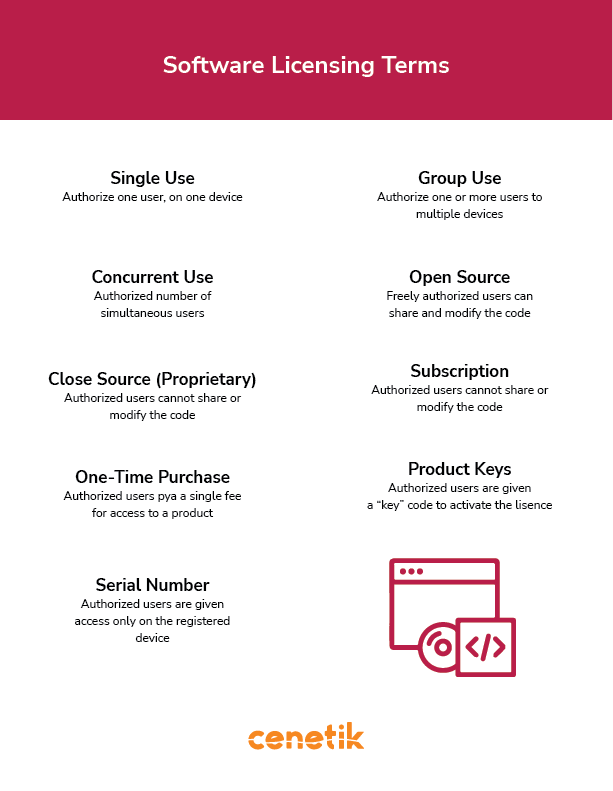
Software Licensing
Every firm makes use of software to control business operations, communicate with staff, clients, and suppliers, among many other things. Most of the time, before software items can be downloaded, installed, or accessed, licenses must be activated or “terms and conditions” must be accepted.
Software licenses come in a variety of forms, each with their own terms, support arrangements, constraints, and fees. To ensure a thorough awareness of obligations and adherence to legal terms and restrictions, users need to understand the fundamentals of software licenses.
What is a software license?
A software license is a legal agreement between the company that developed and provided an application, the source code that underlies it, or a related product, and the end user. The license is a text document created to safeguard the software developer’s intellectual property and to place restrictions on any claims made against them in connection with its use.
Software Licensing Terms and Definitions
There are 9 terms you should be familiar with when determining what software license fits your business. Here is a list of all 9 terms:
- Single Use – a license that one authorized end user to install and use the product on one computer for use by that end user on the computer on which the license is installed.
- Group Use – a license that one or more authorized end user to install and use the product on one or more computer which the license is installed.
- Concurrent Use – a license that is based on the maximum number of simultaneous users who can use the license.
- Open Source – a license that allows the software to be freely used, modified, and shared.
- Close Source (Proprietary) – a license that whose source code is not published except to licensees. It is available to be edited only by the organization that developed it and those licensed to use the software.
- Subscription – a license that the licensee pays a recurring payment (Typically, Monthly or Annually)
- One-Time Purchase – a license that the licensee pays one-time for access to the license.
- Product Keys – a license that requires a string of unique numbers and characters that certifies that a copy of the license is original.
- Serial Number – a license that requires a string of unique numbers and characters, that allows a user to activate the unique rights they have purchased for a given application or service.
